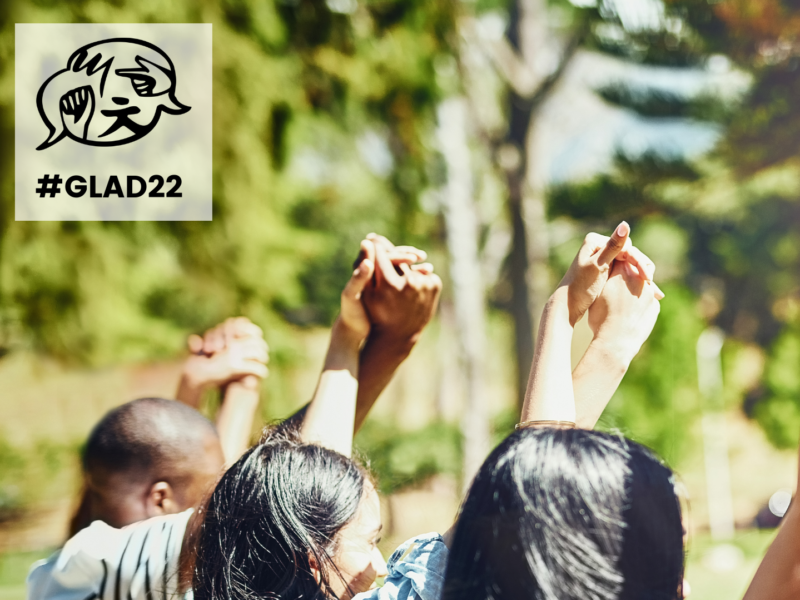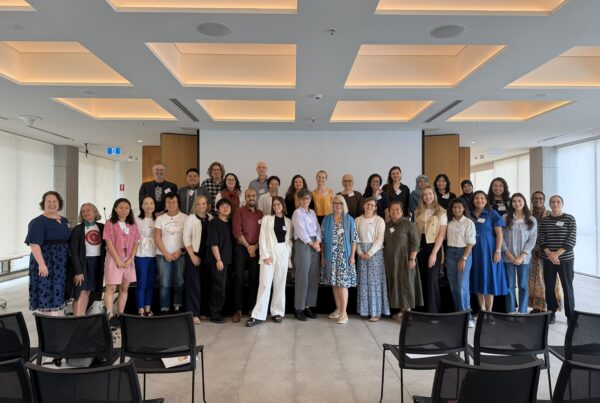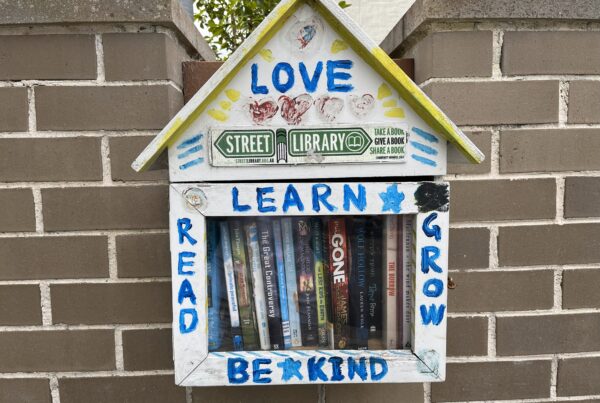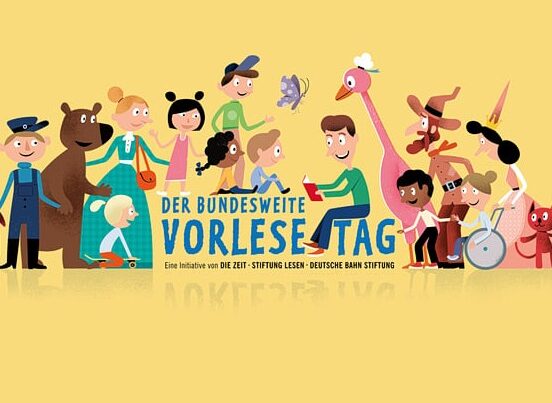This post has been authored by Gerald Roche and Claire French
***
Adéṣínà Ayẹni [@yobamoodua] to Gerald Roche [@GJosephRoche] (2 Feb 2022): I will surely love to be a part of the global day. But one question, can I contribute in my language in place of English?
Gerald: My heart sank as I read this message on Twitter. I’d been messaging people all day, promoting Global Language Advocacy Day (GLAD22), the first ever global event dedicated to raising awareness about language rights. I was really proud to be part of this event, but reading this message suddenly filled me with doubt. Although I had assumed and hoped that people would use whatever language they wanted in participating in the day, I hadn’t really made that clear in how I communicated.
 Claire: I responded to Gerald’s plea for personal stories of multilingualism for GLAD22, and in so doing, drew from my English resources to concretise the dialogue with Gerald, as a mediator to his (and my) followers. I wrote about my experiences as a multilingual that began with learning German. But, I wrote it in English to attend to the monolingual question-answer framework implicit in the Twitter reply function. This framework mimics social interactions, particularly in institutional settings, to see a dominant speaker lead a discussion towards certain personal, political and institutional aims. Interactants (like me) know that they are cut-off from doing this if we deviate from the lingua franca, limiting our combined reach. Thus, the replying function alone is structured by a monolingual bias.
Claire: I responded to Gerald’s plea for personal stories of multilingualism for GLAD22, and in so doing, drew from my English resources to concretise the dialogue with Gerald, as a mediator to his (and my) followers. I wrote about my experiences as a multilingual that began with learning German. But, I wrote it in English to attend to the monolingual question-answer framework implicit in the Twitter reply function. This framework mimics social interactions, particularly in institutional settings, to see a dominant speaker lead a discussion towards certain personal, political and institutional aims. Interactants (like me) know that they are cut-off from doing this if we deviate from the lingua franca, limiting our combined reach. Thus, the replying function alone is structured by a monolingual bias.
***
In this piece, we interrogate the exchange that followed the question above to explore how I (Gerald) endeavored to uphold the language rights that are at the centre of our combined work with GLAD22 and the Global Coalition for Language Rights (GCLR). We interrogate the options made available by social platforms like Twitter and make suggestions for multilingual frameworks for communication that might be upheld in our future language rights work.
GCLR is a relatively young organization. It emerged in the early days of the pandemic when a group of organizations, based mostly in Europe and North America, came together to discuss the promotion of language rights. Founding members and co-chairs of the coalition were mostly representatives of non-governmental organizations and professional translation services. Membership in the coalition grew substantially throughout 2021, as GCLR expanded to include individual academics, activists, and advocates. The changing composition of the coalition, and its increasing size, began to see us nurture our definition of ‘global’ and its articulation through GLAD22.
For GCLR, being global means not just getting the message out as widely as possible, but also being as inclusive as possible, and working in a way that responds to the diverse challenges facing language rights advocates around the world. This global inclusion creates solidarity so we can act together, lending our support to those who face greater risks in their own advocacy.
The first GLAD22 used the phrase ‘language rights are human rights’ to nurture such solidarity. Modeled on Language Advocacy Day, GLAD22 aimed to raise awareness of the need to defend language rights, and to expand our network of solidarity, thus strengthening our capacity to work together in defense of language rights.
There were several approaches via social media to facilitate multilingual discussions but the majority of the engagement came through English language dialogue, which is where the question via Twitter was located.
A Twitter Exchange
I (Gerald) responded to the request to participate in languages other than English with an enthusiastic ‘yes’. What followed was a post in Yorùbá, featuring a banner image with the phrase ‘Ẹ̀TỌ́ ỌMỌNÌYÀN NI Ẹ̀TỌ́ SÍ ÈDÈ’,—‘language rights are human rights’—alongside the GLAD22 hashtag.
The post featured a long thread covering existing language challenges in Nigeria and suggestions for improvement. Priorities included refocusing policy concerns for Indigenous languages as well as prioritizing Indigenous languages in the home and in education.
It received several likes and retweets, including by Gerald to his followers. This is important because Gerald’s actions demonstrated not only that he supported participation in Yorùbá, but also his institutional alignment. Other members of GCLR also engaged with the post, and in doing so, advocated for multilingual participation.
Later in the day, one of Adéṣínà Ayẹni’s mutuals, Kọ́lá Túbọ̀sún (커라 투버순) [@kolatubosun], called out for a language rights group in Nigeria. Several of the key points of the first post were highlighted, especially those that pressure the government for language policy changes. This post was liked by several more users, who commented with their support for the group.
This Twitter exchange provides some opportunities to ascertain the impact of Adéṣínà Ayẹni’s multilingual interaction on the language rights values of GCLR and GLAD22. With the GLAD22 affiliation, users communicated their local barriers to language rights. They assembled to develop solidarity and organizing potential.
Importantly, these interactions were in contexts that GCLR has not yet managed to reach. As one observer pointed out on the day, GCLR had organized ‘no activities in or relating to Africa’ as part of the day. Thus, Gerald’s response helped catalyze meaningful discussion for Indigenous languages with strategies for implementation and, possibly, movement towards local organizing in Nigeria.
What if GCLR has real fit and capacity to do more? What if multilingual frameworks for communication were modeled by GCLR for use within platforms like Twitter, and beyond?
Initiating Multiple Moderators
GCLR might mobilize the Twitter responses shown in this post, and others, to recruit them as moderators for future Global Language Advocacy Days. A series of starting points, methods for moderating in and to multiple languages might be developed amongst members.
These could include reaching out to key educational and government institutions listed in Adéṣínà Ayẹni’s post, to nominate individuals from their institution to speak on their behalf on the day within a nominated social media platform. GCLR members could act as moderators of these discussions in their languages, accumulating new communication hubs across several languages for GLAD23. These hubs could be observed to grow insight around multilingual designs for communication that may eventually be adopted by global north-based moderators such as us.
GCLR has the culture and capacity to do this. Throughout 2021, the coalition participated in a number of larger events, such as International Translation Day and RightsCon. Members’ presentations discussed the importance of language rights as a means of realizing linguistic justice, particularly in the digital realm. GCLR made this information available in as many languages as possible. We feel that it is a natural next step for GCLR to grow its member base meaningfully and initiate multiple moderators across several languages in GLAD23.
Redesigning Multilingual Frameworks for Communication
GCLR is also well-placed to improve decolonizing and multilingual frameworks for communication. Let’s say that Gerald offered to co-author a post with Adéṣínà Ayẹni that would be a thread between English and Yorùbá, linking with Australian and African institutions with power and reach. Such a post may invite comments in both languages (and varieties) that either moderator could respond to.
Such a post may invite language practices such as codeswitching to enter the dialogue because of an ease of intelligibility by the moderators. Users may draw from English resources creatively and as a tool for reaching wide audiences, defined by personal choices rather than monolingual biases. Such frameworks for communication may invite new language practices that emerge in digital spaces but rarely in English-dominated zones.
These frameworks go beyond the otherwise profit-driven knowledge generation in social media discourses as they redesign more socially and linguistically equitable interactions online.
 There is great scope for testing such frameworks within Global Language Advocacy Day. On Twitter, the #GLAD22 hashtag received nearly 60,000 impressions with individuals contributing stories, ideas, and resources and language-focused organizations participating including the Linguistics Society of New Zealand, the PEN Translation and Linguistic Rights Committee, Cultural Survival, Tehlike Altındaki Diller, Tibetan Centre for Human Rights and Democracy, and Hausa Language Hub.
There is great scope for testing such frameworks within Global Language Advocacy Day. On Twitter, the #GLAD22 hashtag received nearly 60,000 impressions with individuals contributing stories, ideas, and resources and language-focused organizations participating including the Linguistics Society of New Zealand, the PEN Translation and Linguistic Rights Committee, Cultural Survival, Tehlike Altındaki Diller, Tibetan Centre for Human Rights and Democracy, and Hausa Language Hub.
Prefiguring Linguistic Justice
GCLR upheld language rights within several aspects of its communication in GLAD22, leading to 13 events in 6 countries in Asia, the Pacific, Europe, and North America and to the support of new debates such as those in Nigeria. We published about language rights issues in the UK and Bangladesh; New Zealand, Japan, the UK, Ireland and the USA, Australia, and Myanmar, organized a social media campaign on Instagram, Facebook, Twitter, and LinkedIn, and received attention in the media, such as this article in Kronos News that was published in English and Turkish. However, as advocates for language rights, we must discern ‘how’ we do this within the limited and often monolingual platforms that we are offered online.
We are currently working to create a set of multilingual principles and practices for the organization, which we aim to have in place before we begin planning Global Language Advocacy Day 2023. Doing so is part of the coalition’s prefigurative practices, i.e., those based on the idea that we should try to ‘create the sought-after forms of justice in the process of achieving structural transformation: to prefigure the world one wants to build.’
This work is also part of evolving organizational strategies in the coalition, which include the formation of working groups, modeled on processes that were used in the Occupy movement (among other contexts). These groups come together to undertake a specific task, without supervision, and then once that task is done, they dissolve. One of these working groups will develop the coalition’s multilingual principles and practices, which will undoubtedly evolve over time, while others address discrete issues raised by coalition members.
If you would like to be part of these language rights activities, and help to prefigure and work towards a world of greater linguistic justice, then we invite you to join us. Contribute your passion, ideas, and labor, your solidarity and commitment, to realizing our mission of language rights for all.






 This work is licensed under a
This work is licensed under a
It is very good, I have interest in it